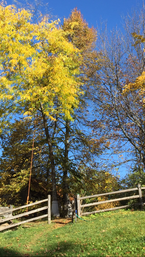 I spent a good part of beginning around the age of three, in a place just like King’s Cove. When my parents first came to this country they lived in mining camps. I spent my early years in these close communities. There were company teas and drinks parties, company swimming pool and the company store. You could not escape the company. And then my mother, a loner in her own right, must have tired of it. How she found the house in this tiny out of the way community along Kootenay Lake, I’ll never know.
I spent a good part of beginning around the age of three, in a place just like King’s Cove. When my parents first came to this country they lived in mining camps. I spent my early years in these close communities. There were company teas and drinks parties, company swimming pool and the company store. You could not escape the company. And then my mother, a loner in her own right, must have tired of it. How she found the house in this tiny out of the way community along Kootenay Lake, I’ll never know.
For a child with a brother almost ten years older, it was a solitary life. There was one other family with children, all boys, the one closest to my age three years older than me, so I spent most of my time entertaining myself.
I would wake up to my mother’s sing-song ‘upsy upsy’, be given a nourishing breakfast of burnt toast from one of those flip side toasters, and a boiled egg and then I was shooed outside, and I was away onto the paths. There was a road that ran between each homestead, but more excitingly for a child, you could get from any place in the community to any other place on a network of paths. Up hills, through meadows or a stretch of forest, through an orchard or someone’s garden.
By the time I was five I already knew all the paths to the people nearest us. I think about children today, constantly overseen by an anxious adult, probably for good enough reasons, but if any of my adults was anxious, I never heard about it. My father was away and my mother wrote. My older brother disappeared somewhere every day on a horse, and, presaging his future as an academic, eventually moved into the barn to conduct science experiments…I assume…I was never allowed in, but it always smelled like he was boiling road kill in turpentine. Consequently, once I was out, time and the world were mine. I spent a millennia of my childhood hours on those paths. They were my ‘secret’ way of getting around.
There were paths that led to places that were already decayed and haunted. The collapsed remnants of the old school house, log cabins of distant early settlers who came, and must have struggled, and left again, trunks of books left behind, mildewed stacks of paper from the early 1900s on farming, and machinery, and sometimes music hall sheets. There were one or two houses, now abandoned and listing, still equipped with pots and spoons, old tins of salt or baking powder. Paths led to old garbage dumps, full of ancient rubble from the teens and twenties and thirties. For a five year old archaeologist, it was heaven. When I tired of wandering about outside, I would go to the cottage post office to sit on the porch overlooking the garden and eat cookies.
I was always barefoot, a fact that led to my two great childhood accidents. Once I walked into a beautiful, soft grey pile of ashes emptied out of a wood stove only to find they were an inferno of hot coals, and was burned badly enough to be rushed to the hospital thirty miles away, my feet wrapped in the burn gloves my father had kept from his war-time kit as a bomber pilot. Another time when I was visiting the chicken coops at house up the hill, I stepped full onto a board with a nail protruding that went right through my small foot. If that sort of thing happens today there’s a panicked trip to get tetanus shots, but all I was given to dry my tears was a home-made mint patty. I still have all my feet, so it must have worked. I can see now that couple of anxious adults would have come in handy during large parts of my youth, but I think people just thought life-threatening mishaps were the price of childhood. I think my mother just assumed we’d always turn up at dinner time. Lucky for her, we did. Lucky for us, she only made toast at breakfast.